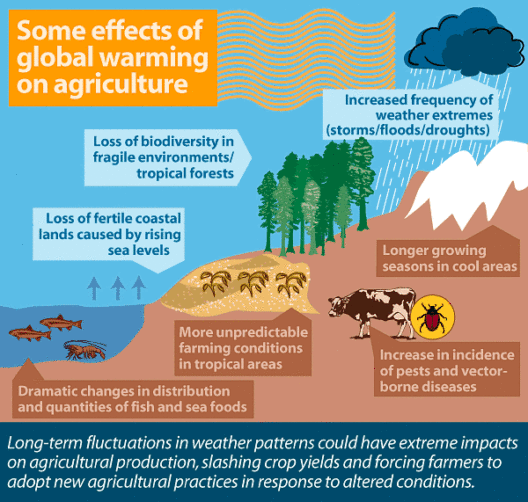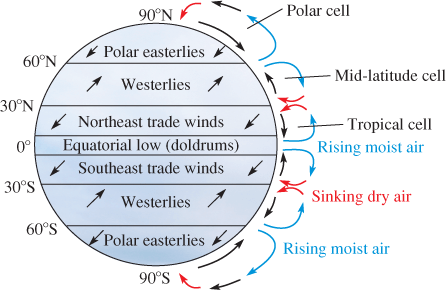Global climate change represents one of the most formidable challenges of our time, having far-reaching implications for ecosystems, economies, and communities worldwide. The good news is that effective actions to mitigate its impacts are not confined to policymakers or large corporations; individuals can play a pivotal role as well. This article outlines practical ways to reduce the effects of climate change starting today—empowering you to take decisive action.
To embark on a journey of meaningful environmental stewardship, it’s essential first to comprehend the magnitude of your carbon footprint. This term refers to the total greenhouse gases emitted directly or indirectly by your activities. An astute awareness of your carbon footprint can spur you to adopt lifestyle changes that significantly lower emissions.
One of the most accessible yet impactful changes lies in our dietary choices. Adopting a plant-based diet can drastically reduce emissions, given that livestock farming is a significant contributor to greenhouse gas emissions. Reducing meat and dairy consumption just a few days a week can make a substantial difference. Engaging in local farming or participating in community-supported agriculture also minimizes transportation emissions associated with food delivery.
While food choices are crucial, energy consumption at home plays a critical role as well. By utilizing energy-efficient appliances, you can decrease your household’s carbon output. Look for products adorned with the Energy Star label, which signifies that these appliances meet stringent energy efficiency standards. Additionally, consider converting to renewable energy sources such as solar panels or wind turbines. Although the initial investment is considerable, the long-term savings and environmental benefits are compelling motivators.
Transportation choices also hold significant sway in climate action efforts. Transitioning to eco-friendly transport options can drastically reduce your footprint. Utilizing public transportation, cycling, or walking when feasible can not only slash emissions but also improve public health and decrease urban congestion. If public options are limited in your area, consider carpooling or opting for electric or hybrid vehicles, which produce fewer emissions compared to traditional gasoline-powered cars.
In the realm of waste reduction, the adage “reduce, reuse, recycle” resonates with profound importance. Begin by minimizing single-use plastics, which contribute extensively to pollution. Opt for reusable bags, bottles, and containers. Composting organic waste not only minimizes landfill contributions but also enriches the soil and fosters a sustainable gardening practice. Educate yourself about local recycling programs and adhere to their guidelines to ensure that recyclable materials don’t end up in landfills.
Water conservation is another avenue worth exploring. Water treatment and distribution require substantial energy, so installing low-flow fixtures and fixing leaks can contribute to energy savings. What’s more, being mindful of water use—like running dishwashers and laundry machines only with full loads—will also reduce the energy required to heat water, thereby decreasing your overall carbon output.
Engagement in community efforts can amplify individual actions. By joining local environmentalist organizations, individuals can participate in initiatives that advocate for policy changes, clean-up campaigns, and local sustainability efforts. These organizations often provide resources and information that can help deepen your understanding of climate issues while galvanizing community support for collective action.
Investing in sustainable products also goes a long way in reducing climate change’s impacts. Seek out companies that prioritize environmentally friendly practices, whether they focus on sustainable sourcing, employ ethical labor standards, or invest in carbon offsets. By supporting these businesses, you not only elevate your own environmental game but also encourage a market shift toward sustainability.
Adopting a zero-waste philosophy can provide an intriguing and fulfilling challenge. This approach emphasizes the idea of sending nothing to the landfill. Start small by assessing your waste output and identifying easy changes. Gradually adopt practices such as bulk buying, making your own cleaning products, and avoiding unnecessary packaging. Each small step can accumulate, leading to measurable reductions of waste in your life.
Additionally, consider cultivating a personal and communal ethos of environmental mindfulness. Share your insights and practices with peers, inspiring them to adopt similar initiatives. Implementing an ecological lifestyle can foster a supportive community that prioritizes sustainable practices. This grassroots momentum can create a ripple effect, extending the commitment to climate action beyond individual endeavors and into broader social spheres.
Lastly, never underestimate the power of advocacy. Use your voice to influence local and national policies aimed at combating climate change. Contact local representatives, participate in town halls, and promote sustainable initiatives in your community. Grassroots movements matter, and collectively, individuals can hold elected officials accountable for environmental policies that prioritize future generations over short-term interests.
By integrating these practical measures into daily life, individuals can contribute to a collective movement that seeks to mitigate climate change’s worsening effects. Each action, no matter how minor it seems, can create a significant ripple through time and space. It is not merely about individual reduction; it is about collective consciousness and driving systemic change. Through determination and practice, a sustainable future can begin today, one action at a time.




